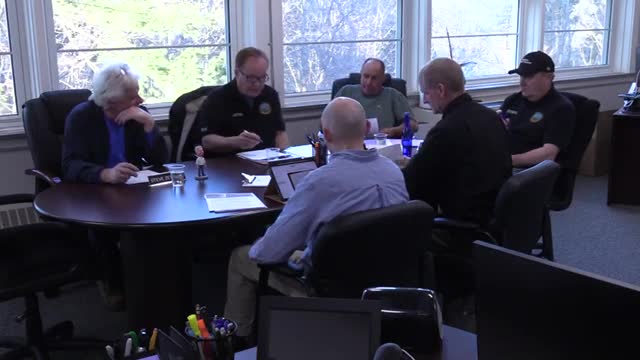Charlton Board of Health moves toward bidding cap at Flint Road landfill after DEP approvals
Get AI-powered insights, summaries, and transcripts
Subscribe
Summary
Town consultants reported state sign-offs that reduce sampling at nearby homes, outlined a timeline to bid a landfill capping project this year, and discussed logistics for soil imports, contractor selection and abutter notification.
Gary Magnuson, town consultant from CMG, told the Town of Charlton Board of Health on March 11 that the Department of Environmental Protection (DEP) has granted approvals that clear the way to proceed toward a capped remedy at the Flint Road landfill and to reduce sampling at some affected homes.
The board heard that DEP agreed the town may move several homes with four consecutive quarters of no PFAS detections to annual testing rather than quarterly testing. Magnuson said that MassDEP currently regulates a subset of PFAS (referred to in the discussion as “PFAS 6”), while the town’s monitoring covers 18 compounds. “DEP said the ones that have no PFAS detections at all in 4 quarters, you can stop and do them annually,” Magnuson said.
The status report submitted in February included a formal IRA modification request that asks DEP to reduce sampling frequency for households that show no detections. Magnuson said DEP approved reducing sampling to annual for homes with four quarters of non-detects; one house with sporadic detections will remain on more frequent monitoring.
Magnuson outlined the next steps and a rough timeline: finalize bid specifications, release a public bid package within about one to two months, and hope to select a contractor in summer with project mobilization in the fall. DEP would like the project completed in roughly one year, meaning mobilization, erosion control and site preparation could begin this fall, with cap construction continuing into the next spring and summer.
The board and consultants spent substantial time on logistics for importing clean fill under the permit (referred to in the meeting as “COM 97 0 1”). Magnuson said the permit allows up to 30,000 cubic yards of material to be brought in and discussed several options for accounting and crediting the town when third-party material is accepted. He described approaches such as: (1) the contractor proposing a lump-sum credit for expected import, (2) monthly or quarterly credits based on certified scale or drone-surveyed volumes, or (3) unit-price credits per approved cubic yard or ton. Magnuson said CMG and the town’s review engineer (referred to in the meeting as Bruce) will review incoming materials and approve them prior to placement.
Board members raised procurement and billing concerns based on past invoice disputes. Magnuson said draft bid specifications will be circulated to the board for review to reduce later change orders and billing disagreements. He also said the town expects to require the contractor to document quality and quantity of material (for example, certified scales and monthly submittals) and to include requirements for traffic control, contractor staging and dust suppression in the base contract.
Other logistics discussed included whether to place a construction trailer on site, temporary fencing to keep the public off the landfill during construction, and coordination with the conservation commission for permit conditions the contractor must follow. Magnuson said the conservation commission review is expected before contractor mobilization and that the town’s review engineer would provide comments for inclusion in the bid package.
Board members also discussed operational details: possible winter operations, the structural implications of rock (ledge) on the eastern slope of the landfill, water hookups and hydrant use for dust control, and truck routing and coordination with police and fire. Steve Gregoire and Steve Blanchard identified two hydrants that could be used during construction.
Magnuson said CMG and the town will aim to have bid documents ready for board review so the board can approve the procurement and be the signatory entity for the contract; Andrew (identified in the meeting as the procurement officer) is expected to sign contract documents on behalf of the town. Magnuson said the consultants will return in roughly one month or two with draft bid documents and more detail for board review.
Why it matters: the approvals and reduced sampling can lower ongoing town monitoring costs and enable the long-planned landfill cap and closure work to proceed, with construction timing, contractor selection and imported-soil accounting left to the bid process.
Provenance: Discussion on DEP approvals, sampling reductions, bid timelines, soil-import credits and logistics began when the board moved into old business on the Flint Road Landfill and continued across the meeting’s landfill agenda item.
